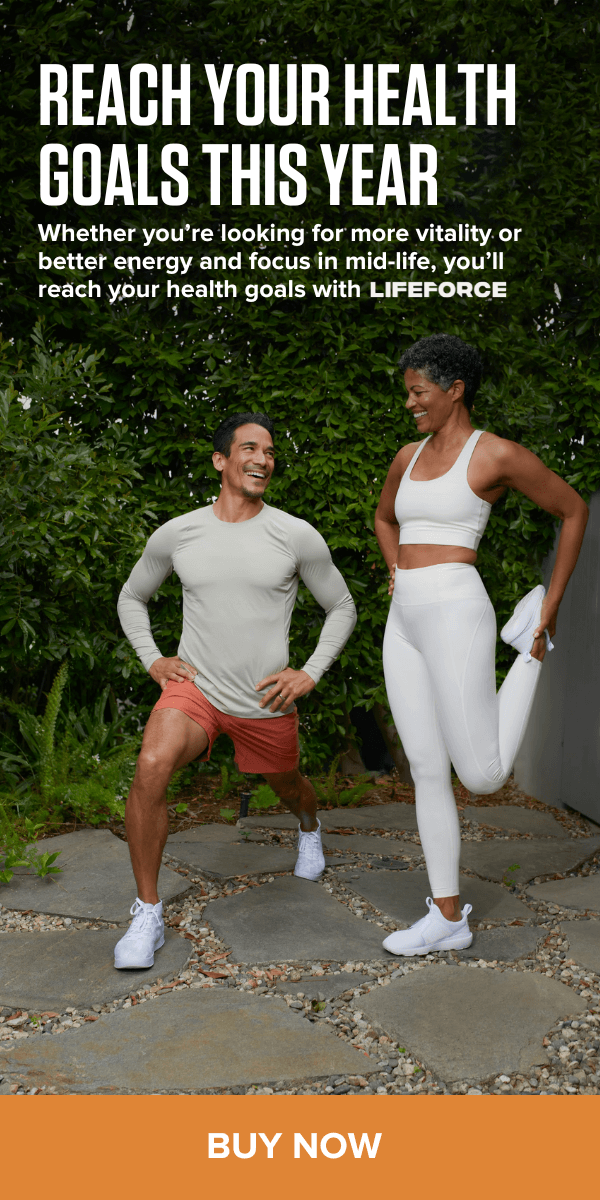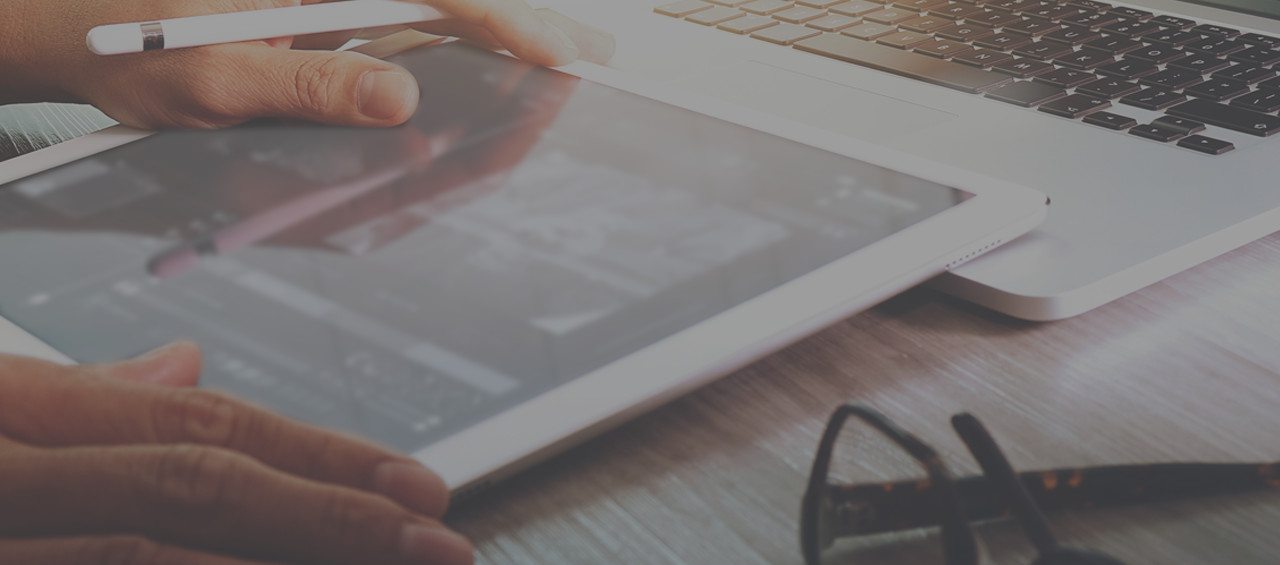Team Tony cultivates, curates and shares Tony Robbins’ stories and core principles, to help others achieve an extraordinary life.
Do you want to live longer?
Learn what Tony is doing to extend the length and quality of his life
The following is an excerpt from an interview between Tony Robbins and Peter Diamandis, founder & executive chairman of the XPRIZE Foundation.
Peter Diamandis: What are you doing to live a healthy, longer life right now?
Tony Robbins: I’m doing a ton of things. First of all, I have everything measured, as you know. I mean, I’ve done HLI and, man, I know where my body is and my genome and so forth. But, as you know, I also do performance testing. And Bob [Hariri] set me up with this scientific group out of Tampa.
TR: They work a lot with top Olympic athletes, and so they came out and they said, “We’re going to monitor you live while you’re on stage for 12 hours.” They didn’t know it was 12 hours, I guess. So they gave me this giant device.
PD: It was a short day for you.
TR: It was a short day for me. But I had this thing on my chest. It’s like $65,000 and there’s acceleration, deceleration, your heart rate variability, everything you could imagine.
TR: And I’m staring at these guys, and they’re in this bank of five guys on the side with their computers, you know, staring at me, monitoring everything wirelessly in real-time. And I don’t know, three or four hours into [my seminar] I look over and I’m like you know, they’ve got a weird [look]. “Is everything okay?” And they’re like, “Yeah.” So I said, “Is there something wrong?”
TR: They go, “No,” we’re just seeing things we’ve never seen before. And so at the end of the day, the battery died at nine hours, I went for 12 hours, right?
TR: But they came and they showed me that I burned 11,300 calories. Which, sounds impossible. But if you saw even before I go out on stage, when I start to gear up mentally, every thing in my nervous system takes over.
TR: So they said, “Tony, this is the equivalent of two and a half marathons run/walk. They tested me twice to see if it was accurate. They came to another seminar and did it, because they couldn’t believe it.
TR: I took in only 1,800 calories. I jumped over 1,000 times. Well, to give you an idea, I weighed 282 pounds. So, he explained to me, “Every time you come down, it’s four times your body weight. So, it’s 1,000 pounds, times 1,000 jumps, in one day. It’s a million pounds of pressure.”
TR: So, he showed me – they went and did my bone density. And, he goes, “Here’s humans, here’s the greatest athletes, here’s something we’ve never measured before.” Which, was my bone density. I’ve never broke anything. Because that much force has made such demands, and my bones have gotten unbelievably strong.
TR: And then, you know, if you’re running with a friend, there’s a point, if you’re running fast enough, you can’t speak, because your lactate builds up to a level four. I was at a level 12 and still speaking.
TR: So, with that kind of demand, I’ve got to do certain things. And so, they gave me some pieces. I’ve been doing this oxygen deprivation while I work out, obviously. And, I’ve built up my strengths. I have about 20% more capacity since the last time we did that, which, is amazing. With less effort, only I just put out more effort. But we did it.
TR: But then, the things that I’m doing specifically that people can relate to, I think, is you know, inflammation as you know, is one of the biggest challenges to the health –
PD: We actually are working on inflammation XPRIZES being pitched at Visioneering for next year.
TR: I heard, I think that’s so spectacular. Because, you know the basis of most disease –
PD: Victoria Jackson is the one who’s promoting this for next year, next cycle.
TR: Oh, that’s fantastic. She’s a dear friend of mine as well. So, I’m glad to hear that, and she’s done so much on orphan diseases, I think you know, right? Their own family and helping other people.
TR: But, the point is, to get that down, cryotherapy is one of the most amazing things you can do in two and a half minutes. And, it’s quite euphoric, it has an emotional component. But, literally, when I used to play football, I’d be icing everything every two and a half hours. You know, ten minutes on, ten minutes off. And it’s painful.
TR: Two and a half minutes at -240° Fahrenheit, and that gets it out of your body. I use that at every event. And, I use it usually twice a week outside of events, as well. I use hyperbaric oxygen for my brain, and my body because I’ve gone through some healing challenges with Mercury – I think you know?
PD: Yes. Just a few healing challenges there.
TR: Yeah, just a few. I do stem cells three times a year. But, I do core stem cells, the things you can’t do in the United States. And as you know they’ve been a transformation to my body, they saved my shoulder when I was supposed to have surgery.
TR: I use a PMF machine – a pulse electronic magnetic frequency machine. When I tore my rotator cuffs, I had spinal stenosis, and the doctor literally said to me, a nice man, “Oh, you changed my life. You made my relationship great. I made 10 million dollars.” And he goes, “Now, I’ve got to be your doctor.” He goes, “See this spine, one good hit and you’re a quadriplegic.” I was like, “What?”
TR: But, I went to doctor after doctor, and then I found this doctor with a PMF. And, I was at [level] nine pain. I can handle pain, but it was so bad I could barely breathe. I couldn’t sleep. I slept an hour and a half a night. And for three days in a row.
TR: Got this machine, took it down to five. Now, this machine is used in Germany to destroy cancer cells. Because as you know, cancer cells are, if I remember right, 20 millibels versus 80 millibels in a healthy cell. They have a thinner membrane. And so it literally shocks it and breaks it.
TR: But, it puts voltage into the body. Think about this, the quality of your life, is the quality of life of your cells. The cells operate because they have a certain bioelectrical energy. When you can put energy that supplements it, and strengthens it, everything works at functional efficiency for every cell, for every organ, for your whole body.
TR: So, I found PMF to be amazing. I use it every day. So, those are a couple samples. Now, what about you?
PD: For me, it’s still the basics. It is – and heres the hard part – sleep.
TR: Yeah, I know that’s so important. I’ve got to stop saying, “I’ll sleep when I die.” That’s the wrong thing.
PD: Yeah, I know, sleep is critically important.
TR: So critical.
PD: It is. I mean, I wear my Oura Ring here. It’s got infrared, it’s got accelerometers, it’s got–
TR: Heart rate variability, it measures, right?
PD: And, temperature. And it basically is able to give you a readout on your REM, and your deep sleep, and so forth. Just to monitor “What can you change?” So, sleep is still fundamental. Exercise, I mean, God knows you get a lot of it. But, I try, and get in exercise every single day.
PD: I’ve got a treadmill desk so I’ll walk my 10,000 steps. Not quite you know – how many marathons are you doing?
TR: Don’t worry about it. You don’t want to do it.
PD: And, then it’s food. So, I’ve gone to a mostly vegan diet.
TR: That’s great.
PD: I know, we’ve had these conversations before. I added fish back in for protein. But it’s still the basics. I’m taking a number of supplements that you know, work right for me right now. I don’t want to promote any particular medications.
PD: But then at the end of the day, I’m super excited to get onto regular stem cell therapies as well. When they become more available. But, it’s still the fundamentals. It’s still – and, I’ll tell you, the other one, bigger than all of those, is mindset.
TR: There’s no question about that.
PD: Right? And, so one of the things that I’m clear about is that I am, you know, punching through that 120 [year] barrier. I feel like I’m at the beginning of my life, right? I have so many lifetimes more to live, compared to the person who you know, loved their spouse, just lost their spouse, they have nothing to live for.
PD: And, what happens? They die, right? What’s the number one sort of relationship between retirement? It’s death, right?
TR: The insurance industry shows that a man retires, and five years later he dies, on average. Not true for women because they never retire. They’re taking care of everybody, they’re fully engaged.
TR: But for men, it’s really true.
PD: It is. And so for me, it’s the passion, and desire, and meaningfulness of life, and the excitement of what’s possible, that’s the number one thing. So, mindset first, then sleep, exercise, and great food.
PD: And then, we’re going to start to layer on top – for myself and for yourself – the lots of treatments. And we know a huge amount of these treatments that are coming out from companies like, Cellularity, from United Therapeutics, from a whole range….




